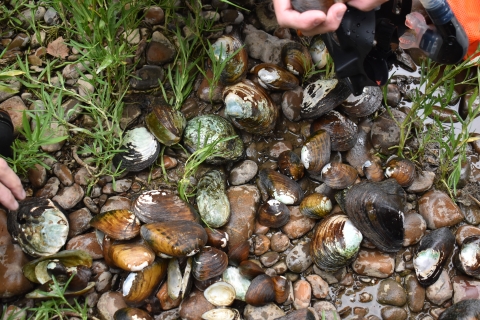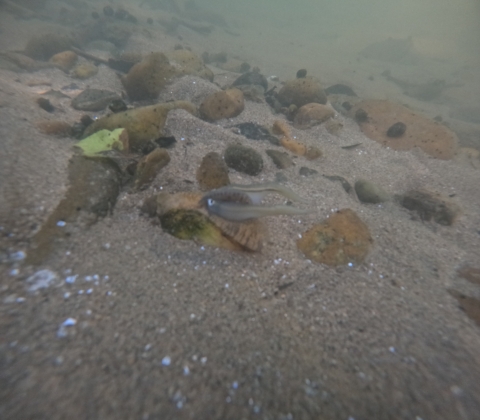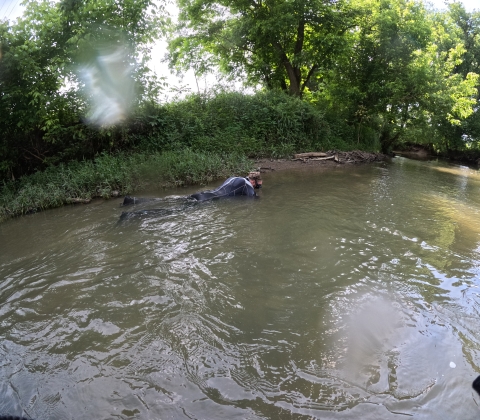Beneath the surface of rivers across east Tennessee lies one of nature's most interesting fauna groups: freshwater mussels! Tennessee is a hotspot for freshwater mussel biodiversity, with over one hundred species historically occurring across the state. Freshwater mussels serve as "livers" for the aquatic ecosystem, filtering out algae, pollutants, and even some viruses!
Freshwater mussels have an amazing lifecycle that makes this species unique. The female mussel will release larval mussels, which are known as glochidia. Glochidia must parasitize fish in order to metamorphosize into juvenile freshwater mussels. Some freshwater mussel species are generalists, and can metamorphosize on a wide variety of fish species, while others are specialists and may only metamorphosize on one or two closely related fish species.
Freshwater mussels use a wide variety of strategies to attract fish in order to infest them with glochidia. Some freshwater mussels species use lures to attract fish. These lures can look like minnows, crayfish, or insects to attract hungry fish. Then, when the fish bites down on the lure the mussel will release its glochidia.
Other mussels release conglutinates, which are packets of glochidia. These packets will drift along the stream, waiting for a fish to eat it. Some mussels are broadcast spawners, which release a web of glochidia into the river for fish to swim into, giving the glochidia a chance to attach to the fish.
There was a thriving commercial freshwater mussel industry in Tennessee in the late 1800s and early 1900s. Freshwater mussels were harvested for pearls, and the shells of mussels were used to create buttons. However, overharvesting and poor water quality caused sharp declines in freshwater mussel populations across the state.
Today Tennessee is home to many endemic, rare, and colorfully named freshwater mussels species, such as the Oystermussel and Duck River Dartersnapper. Other rare species that occur in Tennessee include the Alabama Lampmussel, Birdwing Pearly Mussel, and Spectaclecase.






